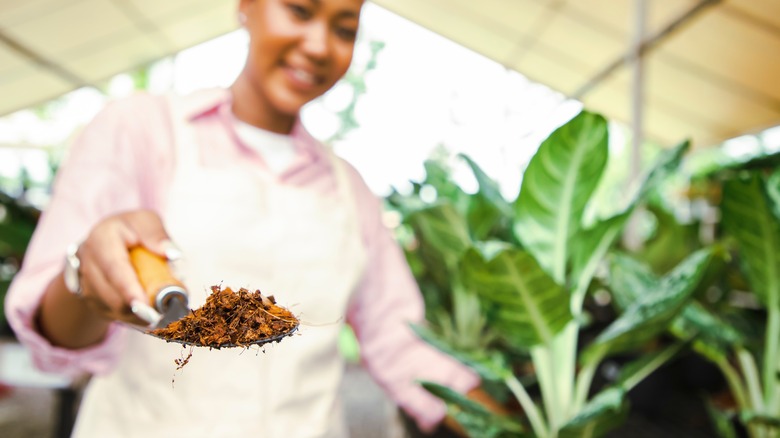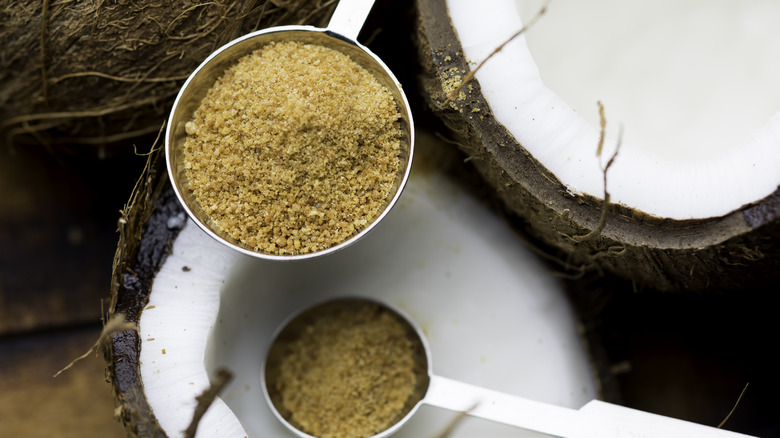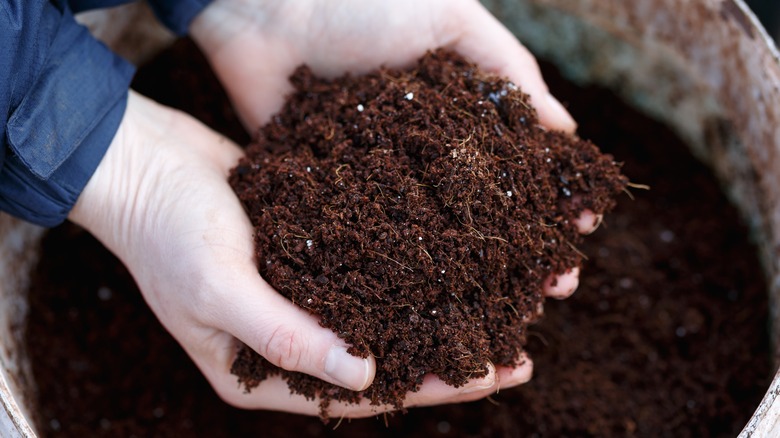Here's How Dried Coconut Works As A Fertilizer In Your Garden
Is there anything coconuts can't do? Milk, water, pie – this fruit has many uses in the kitchen, but you can also use it in the garden to give your plants a boost of nutrients. Of course, you do not want to use the tasty parts of the coconut for your plants, but, if you make your own coconut milk at home, you can make use of the leftover pulp.
The nutrients in coconut fertilizer are similar to what you might find in some synthetic options. The pulp contains the macronutrients nitrogen, phosphorous, and potassium, as well as many micronutrients your plants need to thrive. While this product is chock full of food for your plants, you cannot just toss it on the ground and let it do all the work. You will need to take a few simple steps to make the nutrients accessible to your plant's roots.
Make your own coconut fertilizer
If you are starting with fresh coconut pulp, the first step is to dry it out completely. Wet coconut pulp may rot and lose its nutritional value before you can use it as fertilizer. A thin layer of this byproduct in a food dehydrator or on a sheet pan in an oven on the lowest setting will speed up the dehydration process. If you are purchasing coconut pulp, you are already one step ahead.
To make the fertilizer, simply mix one tablespoon of your dried coconut pulp with 5 gallons of water. Pour the mixture around the base of your plants every one or two weeks for a steady supply of much-needed nutrients. If you are using this fertilizer for houseplants, you can also water them from the bottom. Pour your coconut mixture into a large bowl and add your planter. The soil will absorb moisture from the bottom. When the top is wet, remove the planter and let the excess water drain out.
Another way to use coconut in the garden
Coir is another coconut-based product useful in the garden. Coconut coir is similar to peat moss in its function but it is a more sustainable and environmentally friendly product. As it has grown in popularity and availability, this fibrous material has become more affordable and widely available. You can purchase small bags or large compressed bricks of coconut coir to add to your planters or garden soil. In gardens with dense clay conditions, these tiny fibers help loosen and condition the soil making it easier to work and improving the availability of nutrients to plant roots. In sandy soils, coconut coir adds density and absorbency to the soil structure, allowing your garden to better retain moisture.
To use coconut coir to improve your garden, simply add an inch or so of loose coconut coir to the surface of the soil. Use a tiller to mix it into the top few inches or work it into your garden with a shovel.


